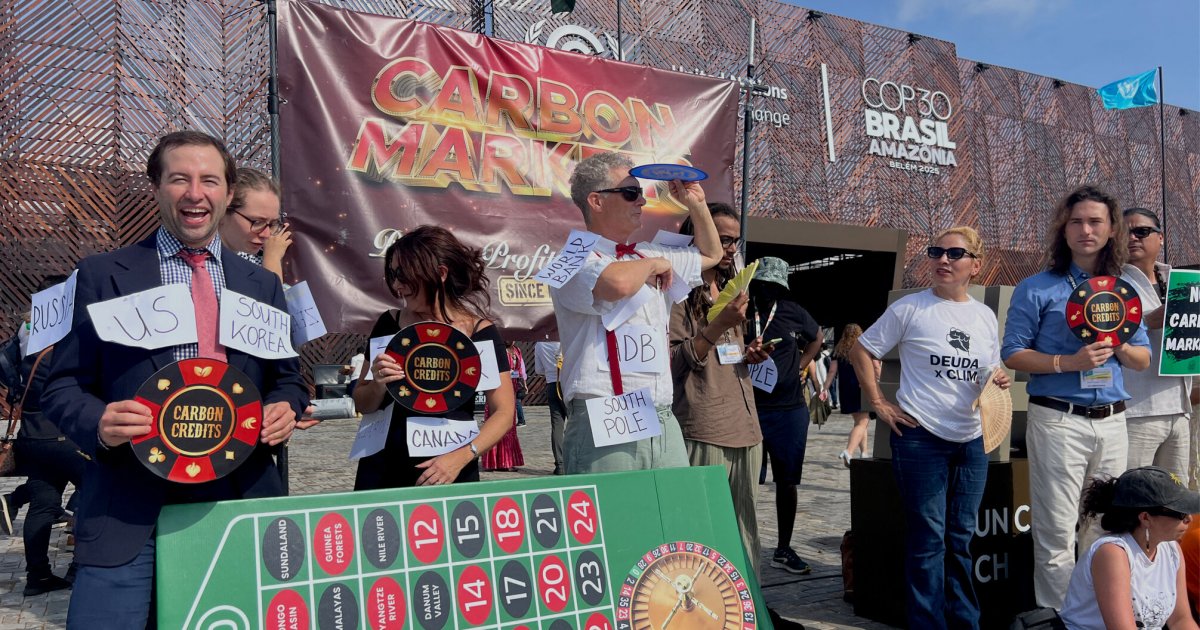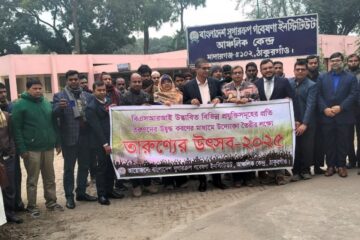The 30th United Nations Climate Change Conference (COP30) officially kicked off on Monday in the city of Belém, located on the edge of the Amazon in Brazil. The 11-day conference will continue until November 21.
The journey of the Conference of the Parties (COP) began with the United Nations Framework Convention on Climate Change (UNFCCC), signed in 1992. Following this, the first COP was held in Berlin, Germany, in 1995.
After a long journey, the 30th session has returned to Latin American soil. This year’s host city, Belém, is significant not only for geographical reasons, but also because it is located near the world’s largest rainforest and the Amazon, known as the “lungs of the world.”
Therefore, the selection of Belém as the host city carries deep symbolism. However, the intense and unbearable temperatures there have caused great suffering for delegates attending the conference.
After a scorching heatwave, light rainfall brought some relief to the city. The weather in Belém is reminding the world that forest conservation, ecosystem protection, and sustainable development are not just part of environmental debates but lie at the heart of climate policy.
Hosting COP30 in the world’s largest rainforest is not just a symbolic decision—it is a historic moment in the search for realistic, sustainable, and science-based solutions to the climate crisis. The main slogan of this year’s COP is “Global Mutirão,” a local tribal phrase meaning “Collective Effort.”
Since the beginning, discussions have focused on global warming, rapid carbon reduction, reducing dependence on fossil fuels, a transparent and fair roadmap for climate finance, and ensuring a loss and damage fund for affected countries.
Developing nations have already put forward strong demands for climate justice, increased adaptation funding, and a practical framework for technology transfer. New discussions have begun on implementing the financing commitments made by developed countries at the previous COP, as well as plans to phase out fossil fuels by 2030.
The COP30 agenda was formally adopted on the afternoon of the first day of the conference. However, some observers argue that key issues such as climate finance may once again be sidelined. In the opening plenary session, Tuvalu’s Climate Minister Maina Vakafua Talia said: “Trump’s withdrawal from the Paris Agreement and his rejection of climate science are shameful and contemptuous of the rest of the world.”
Meanwhile, Pakistan’s Climate Secretary Ayesha Humera said: “The climate crisis is the greatest human rights violation of our time.” Representatives from the United States—the world’s largest and historic carbon emitter—were notably absent on the first day. No government officials or media representatives were present.
A group of 25 UN Special Rapporteurs issued a joint statement calling for full compliance with international law, warning that without it, the entire UN-organized COP process risks losing credibility.
This is the first time COP is being described as a “delivery-focused conference,” meaning that its main goal is not just to set commitments, but to establish actionable steps and timelines. From the discussions so far, it is clear that this conference could set a new paradigm for climate policy and global cooperation.
In particular, the activation of the Loss and Damage Fund, including a compensation framework for vulnerable countries, is likely to be one of the most important achievements of COP30.
Brazil’s veteran climate diplomat and COP30 President, André Corrêa do Lago, formally opened the conference, promising that “Belém will be a COP of truth.”
“The COP process is making a difference, but we need to move faster,” he said. “The Paris Agreement was made 10 years ago when it was predicted that our temperature would exceed four degrees. Today we know that we have reduced it. But we also know that we must work harder to reduce it further.”
However, following the landmark climate ruling by the International Court of Justice in July this year, discussions on a “Just Energy Transition”—a key topic at COP28 in Dubai—may face challenges in being placed on the formal agenda, despite being considered a binding obligation under international law.
Meanwhile, an agreement has been signed to drill offshore for fossil fuels in the Ionian Sea, west of Greece’s biodiversity-rich island of Corfu, with drilling expected to begin as early as 2027. “As the world faces a growing climate crisis and science demands an end to fossil fuels, the Greek government has decided to side with the oil business, not the Earth,” said Dimitris Karavelas, director of the Greek branch of the World Wildlife Fund (WWF).
“The agreement to drill in the Ionian—a biodiversity hotspot and a cornerstone of Greece’s tourism economy—is not only disappointing, it is short-sighted and completely out of step with the times.” Greek Prime Minister Kyriakos Mitsotakis said on Sunday that the deal would be key to strengthening the country’s energy security in the coming years. US Energy Secretary Chris Wright called the deal “historic” and praised Greece as a strong US ally.
According to a 2021 study by the Food and Agriculture Organization (FAO), soil is the world’s largest carbon sink after the ocean. However, countries worldwide are ignoring its potential. A new UN report released yesterday shows that nearly 70% of countries do not include soil as a tool for climate mitigation in their Nationally Determined Contributions (NDCs). Analysis by Save Soil, a global grassroots movement combating the degradation of agricultural soils, found that 27% of the emissions reduction needed to keep global warming below 2°C could be achieved by 2100 if agricultural soil health is restored. Sustainable agricultural practices could reduce fertilizer-related emissions by up to 80% by 2050.
The main discussion phase will begin on the second day of COP30 on Wednesday night (Bangladesh time), following the adoption of the agenda. The focus will be on climate finance, scaling up the Adaptation Fund, and a roadmap to implement the Global Stocktake (GST), where developing and climate-vulnerable countries will strongly demand financing and technology transfer.
Bangladesh will participate actively, as the Adaptation Fund is essential to addressing sea-level rise, coastal erosion, salinity, and cyclone risks. The United Arab Emirates Annual Dialogue will begin on Thursday.
On the second day, youth representatives, local governments, and environmental organizations are expected to emphasize climate justice, compensation for climate damage, and biodiversity protection at various side events. Government officials, representatives of non-governmental environmental organizations, and media from Bangladesh have already begun participating.
Bangladeshi delegates have several bilateral meetings scheduled at the Bangladesh pavilion. In addition, international commitments to forest conservation, rapid renewable energy transition, and carbon reduction will be discussed at a new level. Overall, from the second day onward, COP30 is expected to move beyond paper-based commitments toward implementation-focused decisions—an important step in addressing the global climate crisis.



